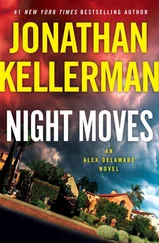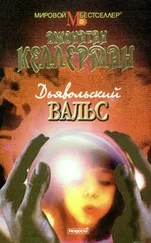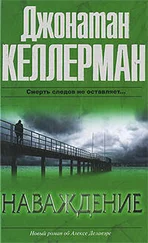All right, Julian. Before we begin I wanted to make sure that you’re settling in okay.
The response came slowly.
Uh-huh.
I’d never heard Triplett speak before. His voice was deep, so muted that you could mistake it for a distortion in the recording. As though he were hiding beneath the covers.
How are you liking the new place? the woman asked.
Pretty good.
Okay. Okay, good. Well. I spoke to Dr. Rennert about your medication. You remember I told you that I can’t do that for you, write prescriptions? He and I agreed that he’ll continue to handle it, like you’ve done so far. I’ll check in with him periodically. But if you ever run out, or you’re having a problem, and it doesn’t feel right, you should come talk to me and I’ll do what I can to help. That’s what I’m here for. Okay?
Okay.
Okay she said. Great.
Silence; hiss.
She said How’ve you been feeling recently?
Okay.
I know you’ve had a lot of changes. No response. Do you want to talk about that?
All right.
The silence went on so long I started to think the tape had ended.
How about your symptoms? Are you hearing voices?
No.
The conversation lasted another twenty-five minutes, much of it empty air. The therapist probing gently, Triplett mumbling yes or no or I guess.
I’m so glad we’re talking, Julian. I really look forward to getting to know you better.
No answer.
The hiss cut off.
I reached for the next cassette.
As in his letters to Rennert, in his speech Triplett gave an unsettling initial impression. He sat silent for uncomfortably long stretches, ignoring — or seeming to ignore — questions that would have sparked an emotional response in most people. I could imagine him sitting there, taking up a vast amount of space, like some dormant volcano. I could guess how he had come across in court.
The therapist never lost patience, slowly building up a rapport over many sessions. While Triplett was never chatty, his replies got a hair more expansive, his mood less skittish. On tape eight he referred to a job. He’d been hired as some sort of shop hand.
During the following session, she asked how work was going.
I don’t like it Triplett said.
What don’t you like?
He thinks I’m stupid.
Has he said that?
No.
So why do you think he thinks that about you?
He don’t let me touch nothing .
Touch what? The tools?
I wanted to use the band saw. He said I don’t know how.
But you do know.
Yeah I know.
You could try telling him that she said. Pause. Why are you shaking your head?
He won’t listen.
Well, you don’t know that unless you try.
As their relationship deepened, I began to feel guilty, eavesdropping. But not enough to stop.
From tape eleven:
Happy birthday, Julian. It’s tomorrow, isn’t it?
Yeah.
Doing anything special to celebrate?
I don’t know.
What about the friend you mentioned? From work?
You mean Wayne he said.
That’s the one she said. You could invite him to do something.
I don’t know.
It seems like you two get along fairly well. What’s something you both like to do?
He wants to see the X-Men.
Would you like that?
Silence.
He’s got a girlfriend Triplett said.
Well, fine, but if he wants to go to the movies with you, I bet she’ll be okay with that.
I don’t know.
Well. Whatever you decide to do she said I hope it’s a good day for you.
I picked up the cassette case. July 8, 2006.
Triplett’s birthday was the next day, the ninth. He had a few years on me. Born in ’78.
7-9-78.
Rennert’s alarm code.
Come midnight, I’d been listening off and on for over six hours and had yet to learn the therapist’s name. Triplett never addressed her, and the recordings picked up in the middle of their talks, as though she waited until they’d said their hellos to start taping.
Then, toward the middle of tape thirteen:
Dr. Weatherfeld?
Yes, Julian?
When
I rewound to make sure I’d heard right.
Dr. Weatherfeld?
I stopped the tape, opened my laptop.
No mental health professional by that name showed up in the Bay Area.
But I did find a Karen Weatherfeld, farther afield.
ABOUT ME
I am a Licensed Clinical Social Worker, offering individual and group therapy for adults facing a wide variety of challenges, including depression, bipolar disorder, and schizophrenia.
She had an office in Truckee. About a twenty-minute drive north of Lake Tahoe.
I kept my email to her casual and quick, asking for a callback, identifying myself as a sheriff but mentioning nothing about Rennert or Triplett.
Within seconds I received an automated reply.
Thank you for your inquiry. I will be away from the office until January 13th. During that time I will be checking email infrequently. If you are experiencing a mental health emergency, please contact the Nevada County Crisis Center at—
Over the ensuing week I called carpenters and cabinetmakers in the Truckee-Tahoe area. There were a lot of them; construction appeared to be one of the main local trades. Vacation homes needed building, refurbishing.
No one I spoke to knew Julian, let alone admitted having employed him.
The day of Karen Weatherfeld’s return, I sent a follow-up email. No response. I sent another; same result. Called her. Called her again.
On Saturday we took a homicide in Oakland, guys beefing over a debt, the vic mouthing off about the shooter’s girl. While Shupfer finished up with the cops, I perched on the van bumper, dragging my finger down my screen to refresh the inbox, again and again.
Nothing.
I gave Karen Weatherfeld the rest of the weekend. By Sunday night my patience was gone. I had forty-eight hours of my own time and I intended to use them. I checked the weather report and road conditions, threw some clothes in a bag, and set an alarm for four a.m.
It was still dark out when I reached Sacramento and stopped at Walmart to buy chains for my tires. The streets of the capital were wet, and after another hour on 80 North, snow appeared at the margins, wispy strands that thickened with the climbing elevation.
I hadn’t spent any time in the western Sierras; for obvious reasons, I don’t ski. Operating on a gallon of coffee, I gazed out over a surreal landscape — unimaginably beautiful from a distance, terrifyingly harsh up close — and felt an unpleasant tickle in my heart.
A crumpled moonscape, massive blades of granite. Blackened, limbless remnants of forest fires; stark pine mobs. Coppery light oozed down the mountainsides, like the blood of some giant beast caught and thrashing on a jagged peak.
Names on road signs were strange and unsettling. Rawhide. Secret Town. Red Dog. You Bet. At the turnoff for Emigrant Gap, the California Highway Patrol had set up a tire chain checkpoint. Enterprising young guys in parkas hunkered on the shoulder, offering to help with installation for twenty bucks. I hired one and we got down together on the salt-slimed asphalt, pebbles biting through the knees of my jeans.
I rumbled onward, toward Donner Lake, Donner Pass, Donner Memorial State Park. While I could summon a pang over the plight of folks forced to eat their dead, the decision to name every local landmark after them seemed macabre.
Читать дальше












